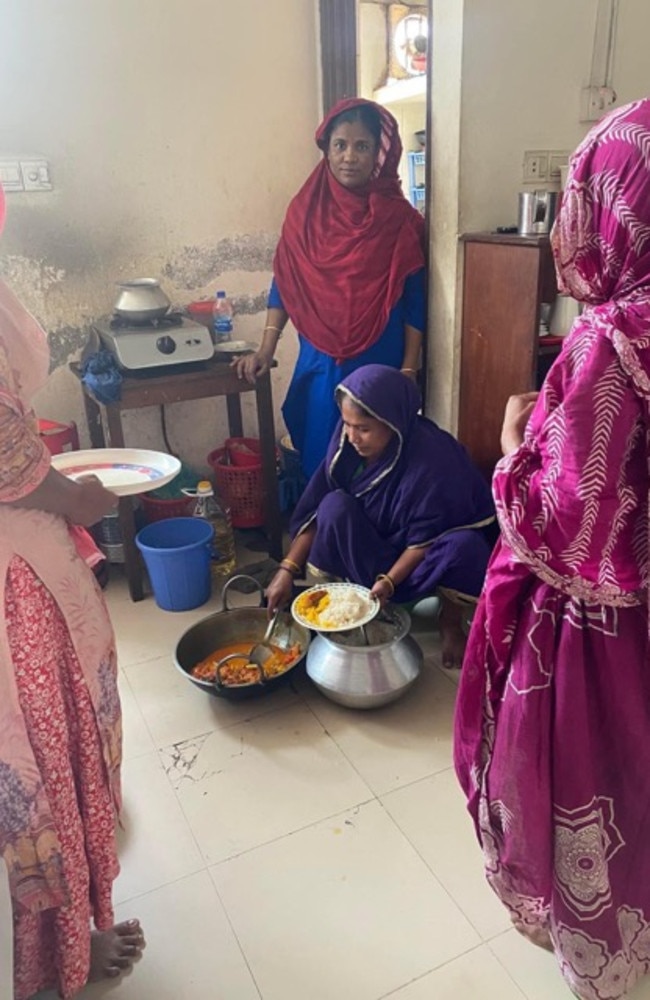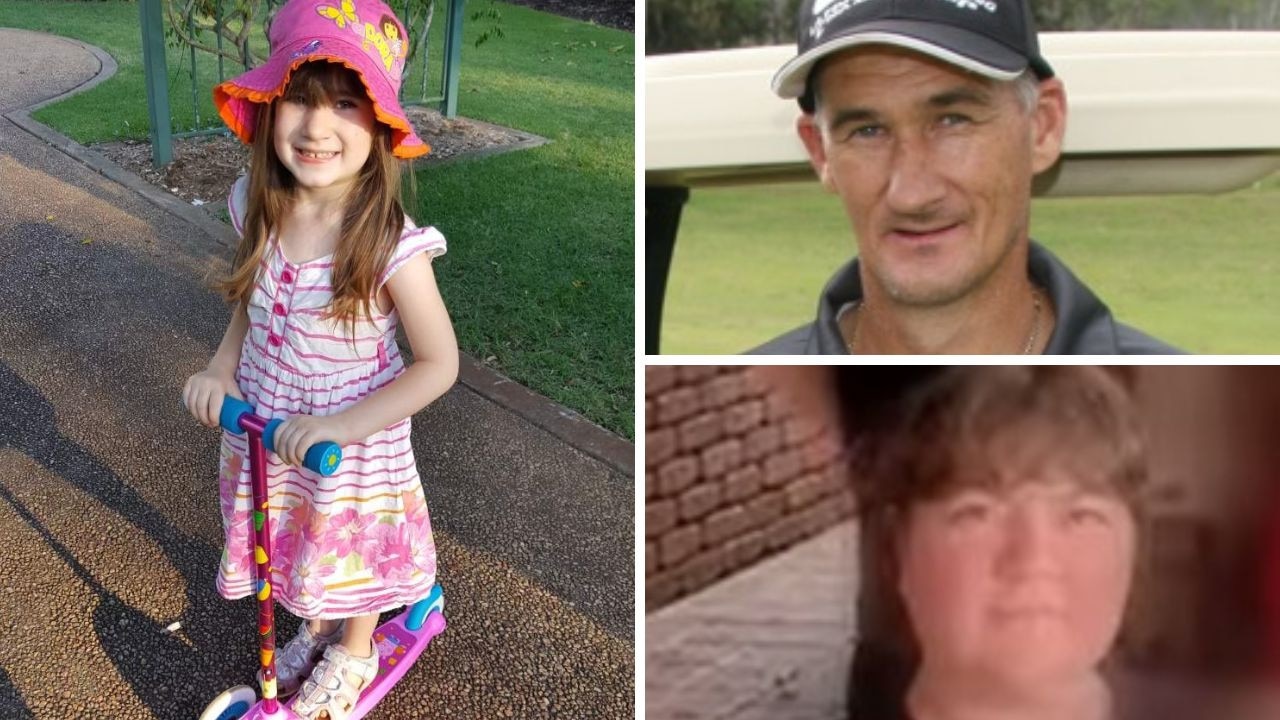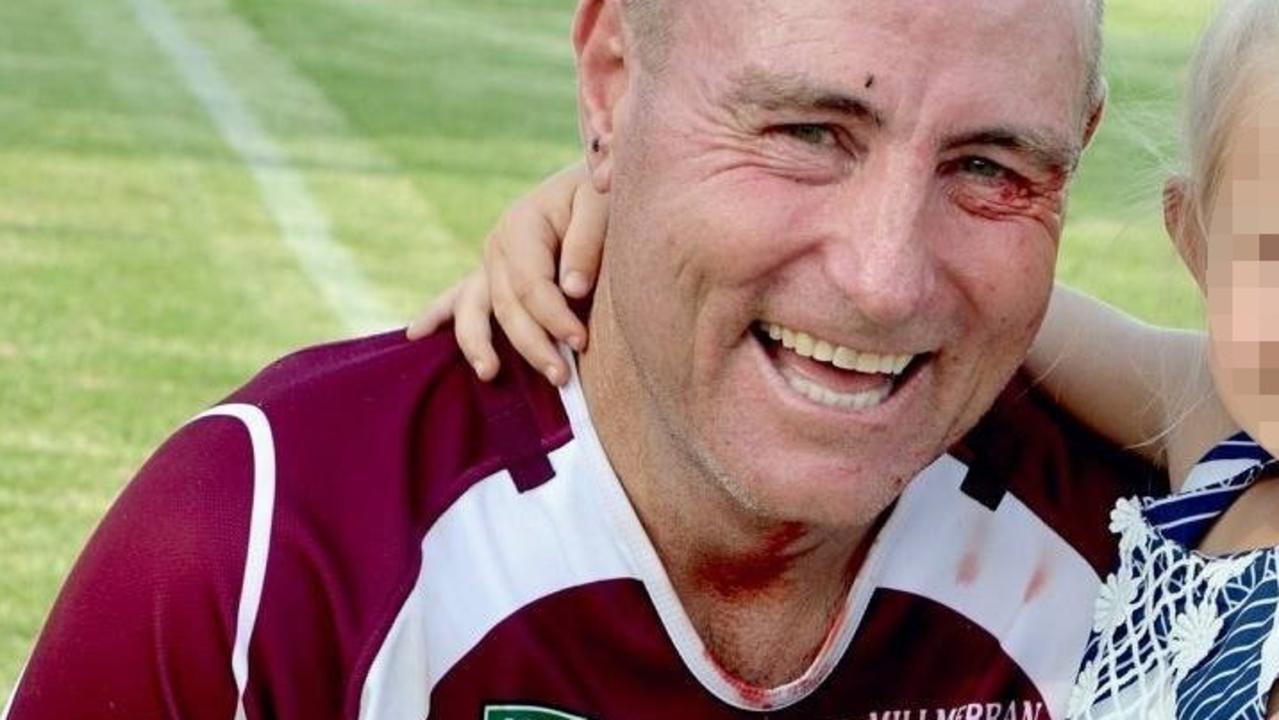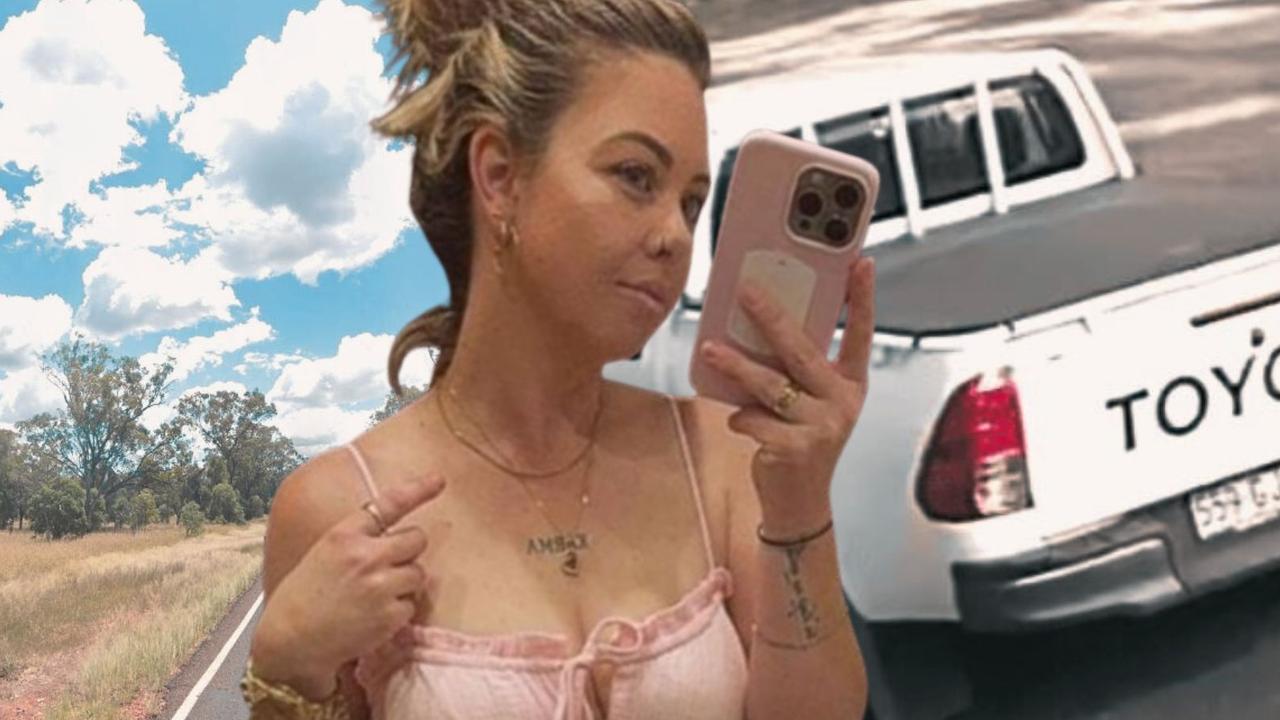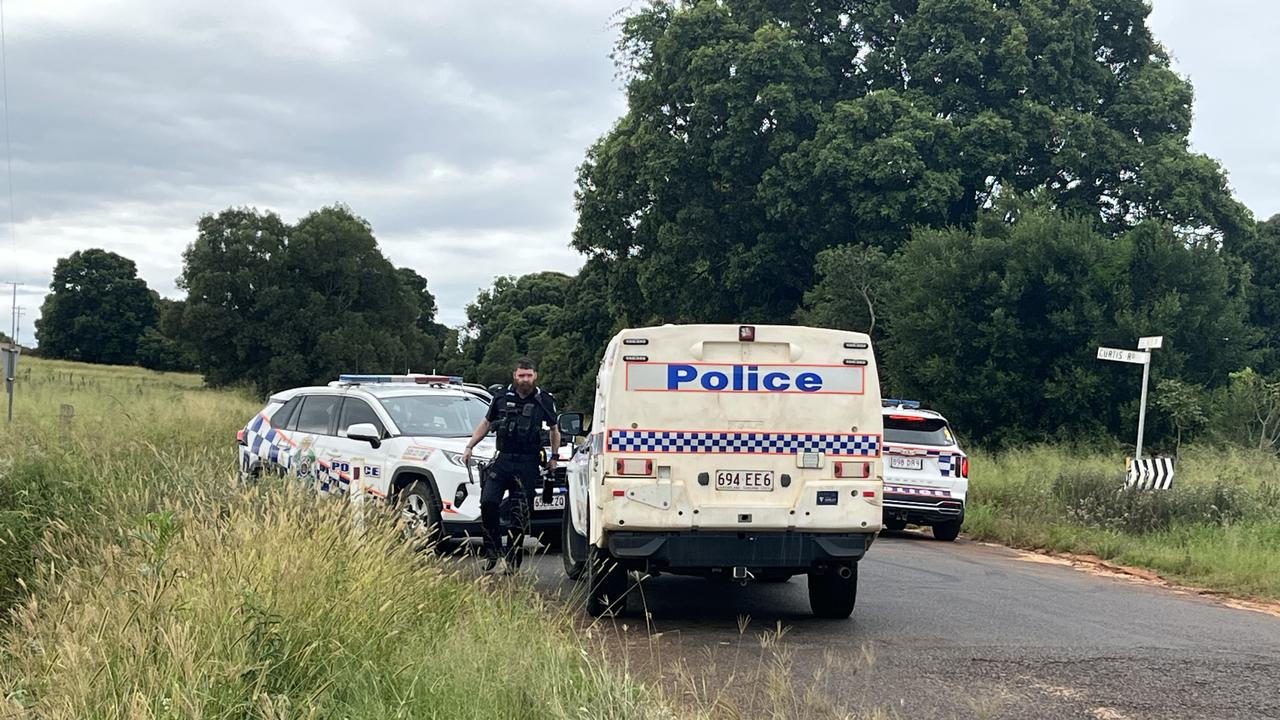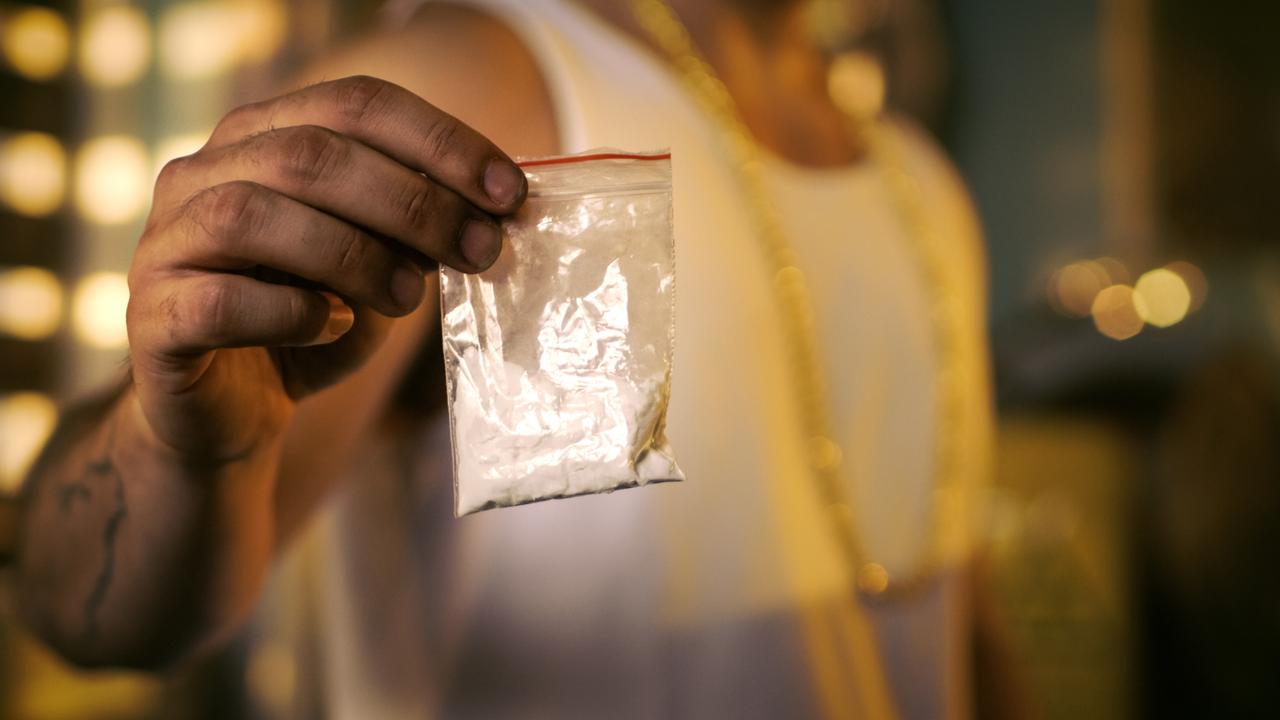Toowoomba volunteers travel to East Timor, Bangladesh to help with health, education in third world countries
Two Toowoomba couples have travelled across the globe on separate missions to help improve health conditions in third world countries. Here are their eye-opening experiences, and how they're helping to save lives.
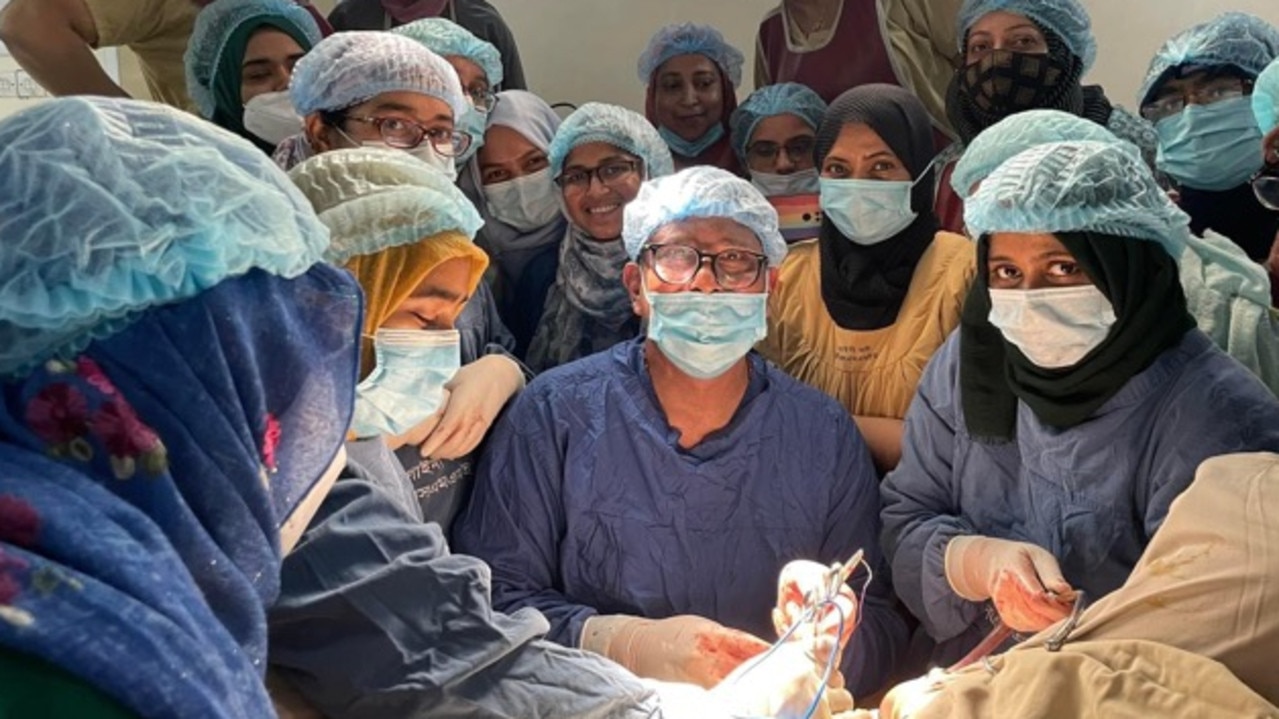
News
Don't miss out on the headlines from News. Followed categories will be added to My News.
Holes in houses, birthing beds less than a metre apart and damaged classrooms are just some of the shocking discoveries a Toowoomba music teacher has faced while living in a third world country.
Madeleine Minns, who has taught music at St Joseph’s College for more than two decades, and her partner Malcolm Gaydon have been volunteering in East Timor with Palms Australia.
The couple packed up and left their Toowoomba home in June last year and have been living in the small village of Aidabaleten, which has a population of an estimated 15,000 people.
As part of the mission, Ms Minns has been teaching English to high school students and writing grants to help secure more funding for the local school.
Meanwhile Mr Gaydon, who has experience with raising sheep and cattle, is helping to care for and adopt preventive health practices for sick or injured animals.
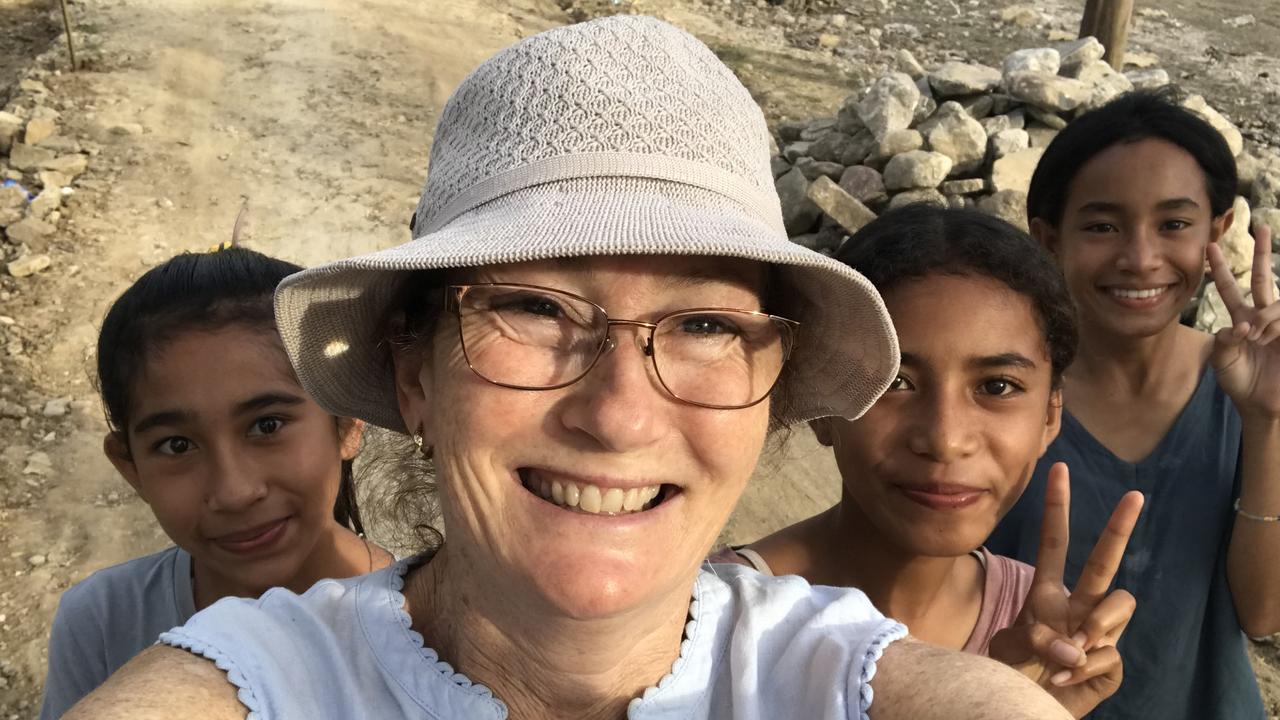
“For years I wanted to volunteer in a country less fortunate than Australia to help mentor and upskill people and improve sustainable practices for long-term benefits in the community,” Ms Minns said.
“Ultimately I won’t be here forever. I’ll go home to my lovely home in Kearneys Spring with my garden, so it’s very important whatever I do now fosters sustainability and can be continued once I’m gone.”
Ms Minns said she wondered how students coped with all the languages they had to learn at school with kids taught Tetam from a young age, textbooks written in Portuguese and 37 spoken dialects in the country.
Up until five years ago when the government built a new school closer to the village, students had to travel long distances to obtain an education, but Ms Minns said the building needs an urgent upgrade.
She said there were rarely enough desks, chairs and textbooks available, classrooms were filled with broken walls and floorboards and the only resources available were old chalkboards.
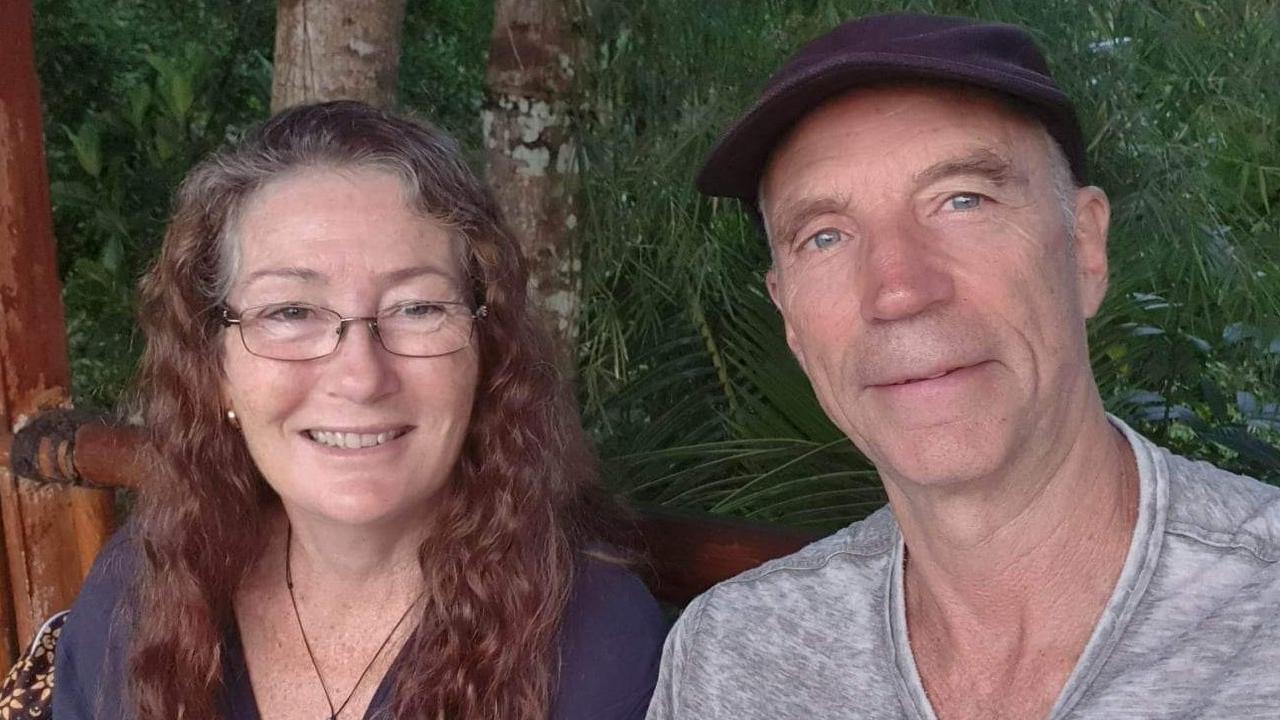
Describing the locals as friendly and easy going, Ms Minns said they laughed a lot and were grateful for what they had, despite there being a desperate need for funding.
She said the unemployment rates were very high in the area with many people aged between 20 and 40 out of work.
With no money to fund movie theatres, coffee shops, internet, computers and smart phones, Ms Minns said it was a completely different world to Australia, with teachers and children attending school six days a week and church on the seventh day.
High humidity and heat often meant all activities had to cease at 1pm and not resume until 4pm.
“In Toowoomba there’s that real incessant need to succeed and go, go, go but that pressure is not here – the simplicity here is unmatched to anywhere else,” Ms Minns said.
“We are living in a cement rendered house which sounds glamorous but it has been quite an adjustment – the houses don’t have roofs or they are made out of tin and have holes, so a lot of mosquitoes come in.
“Timber is needed to cook and the only way to get water is to pump it from a well. It kind of blows your mind but really puts things into perspective.”
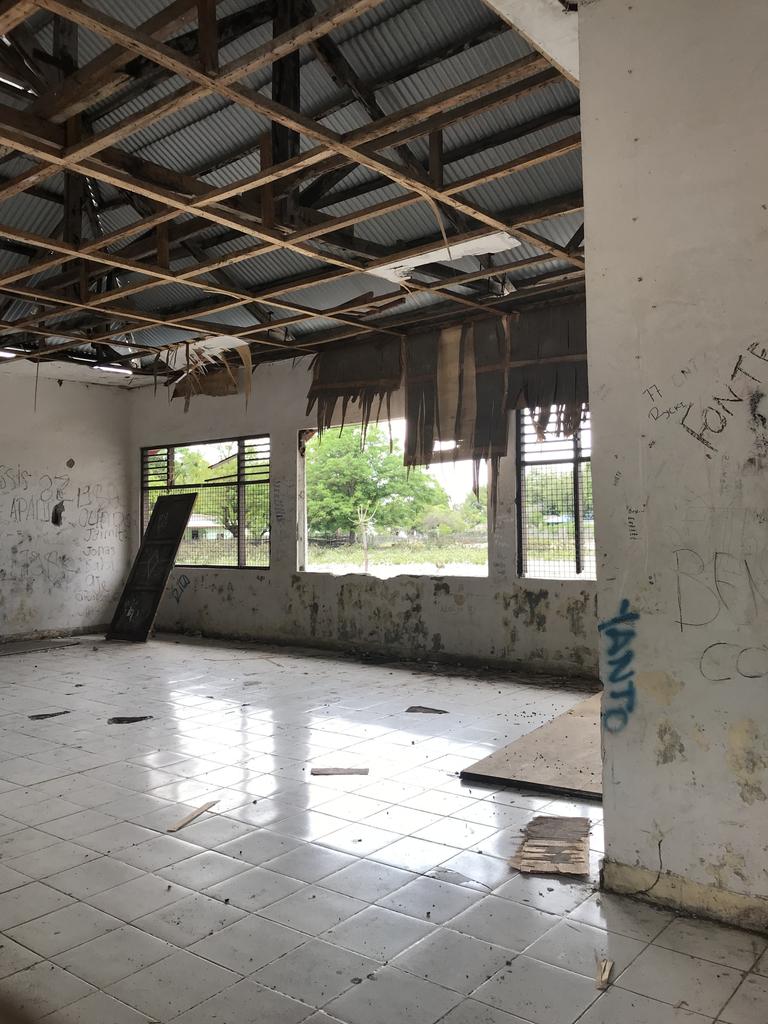
Despite encountering many surreal situations, Ms Minns said the lack of privacy and constant noise had been her biggest struggle as houses were located in such proximity.
Over the past 11 months, Mr Gaydon has helped heal a goat’s blindness caused by a virus, using a homemade recipe of aloe vera, garlic and antibiotic cream.
Mr Gaydon, who also teaches music at various Toowoomba schools, has also helped prevent the spread of diseases among pigs and improved the water supply for animals in the village.
With food being sparse in the area, Ms Minns said the community had to prioritise feeding children and families over animals, forcing them to forage for food themselves.
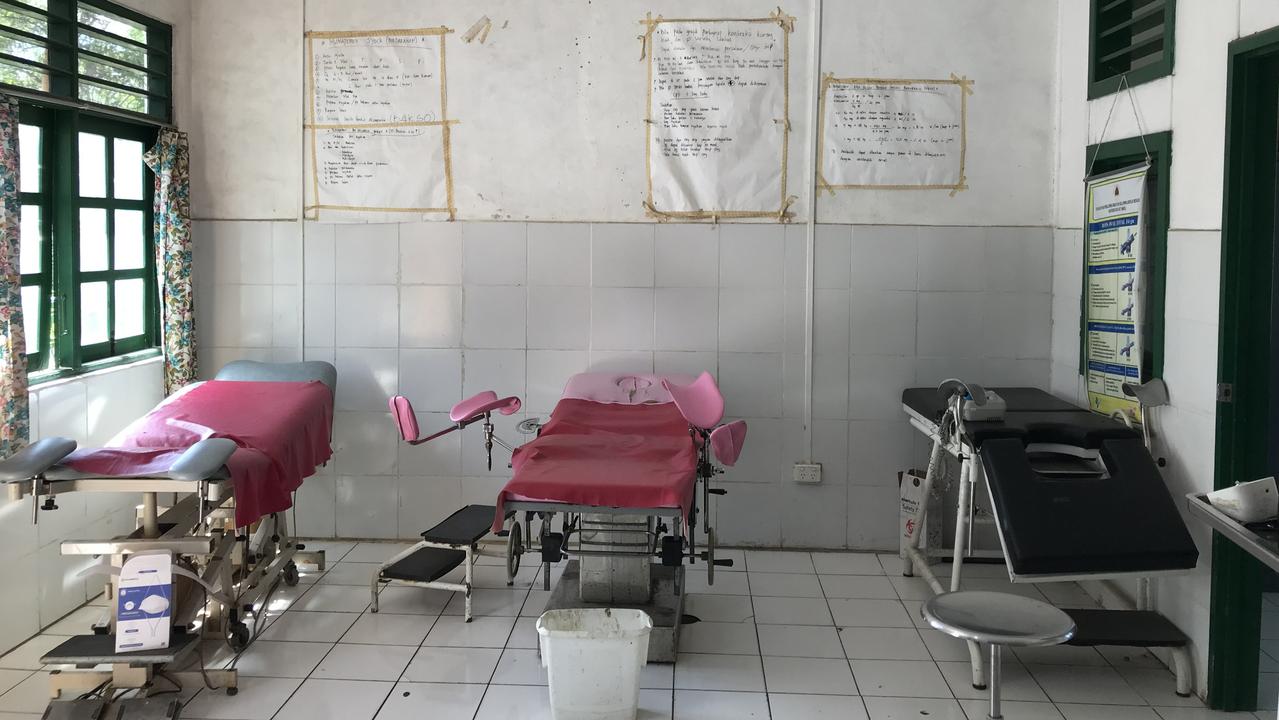
While the pair were set to return to the Garden City in June, they are now considering to extend their stay.
The couple has launched a fundraising campaign for the Aitabae Community Health Clinic and maternity ward.
The birthing suite, which is confined to one room, consists of a handful of beds for expectant mothers who are in labour with no privacy or water available.
“I have had three children and I cannot imagine giving birth with other women being less than a metre away,” Ms Minns said.
“Staff have to go outside with a bucket to collect water from the well, the beds are made of vinyl and they are all ripped … it’s really quite frightening.”
Ms Minns said the junior high school was also in urgent need of funding with damaged classrooms and toilet blocks meaning some children could not access a bathroom.
With a target of raising $22,000, the couple have issued a plea to the Toowoomba community to get behind the cause.
To donate click here.
Specialists work to eradicate women’s health issues
Toowoomba gynaecologist Dr Anthony Cerqui and his wife Sarah Cerqui, who is a urodynamics nurse, have also faced challenges in their work to improve women’s health in Bangladesh.
Accompanied by five other Queensland doctors, the couple spent eight days in the third world country to care for women experiencing serious health concerns caused by traumatic births.
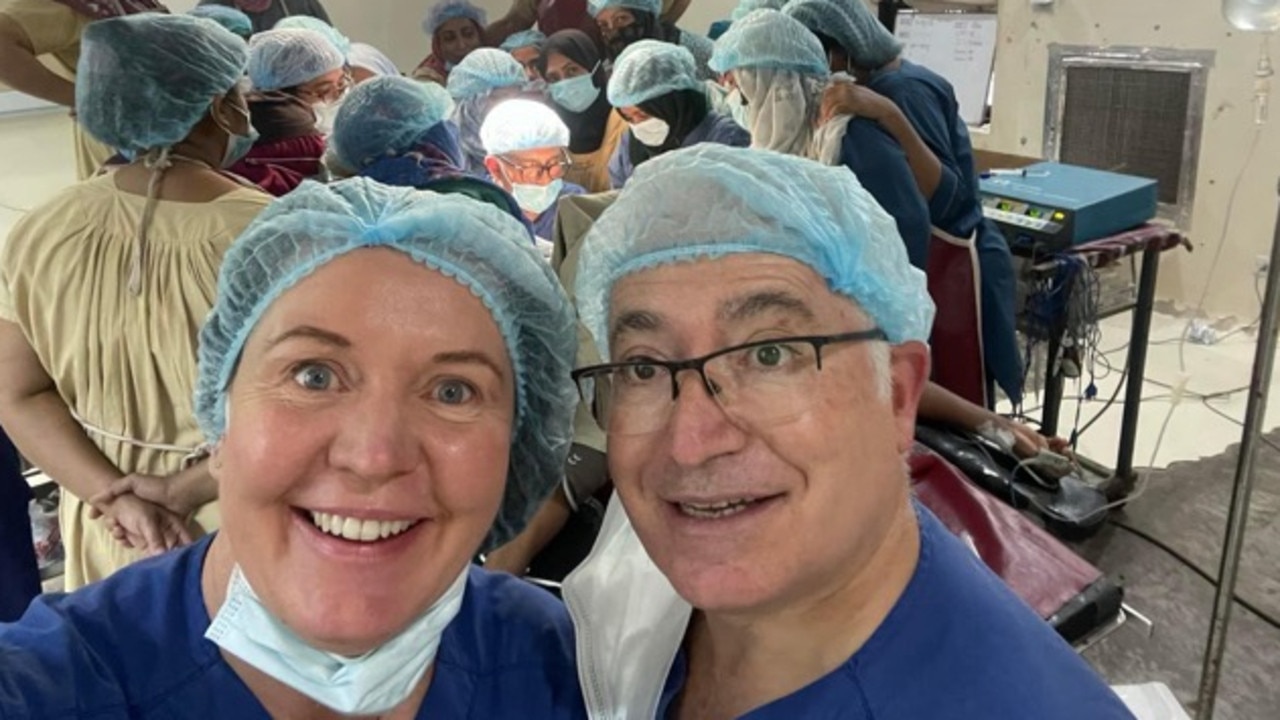
Charity Flourishing Women organised the medical trip where volunteers performed operations, trained staff and delivered the country’s first urodynamics machine.
“It was the first time we have worked in a third world country and it was the most
rewarding and humbling experience for us both,” Dr Cerqui said.
“What we sometimes lose sight of as a community is that if a woman, regardless of where in the world she lives, dies during childbirth her child only has a 50 per cent chance of survival.
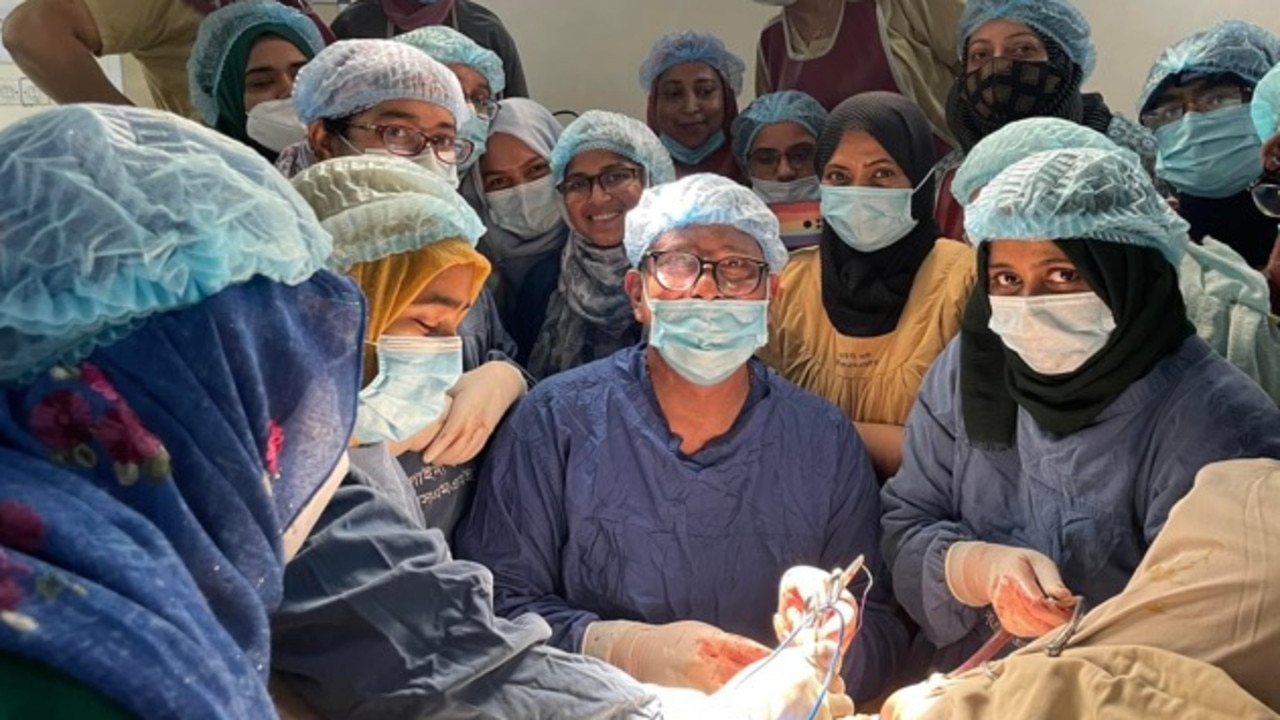
“Women all over the world need to have access to proper health care and the trip to
Bangladesh was a real eye-opener as to how significant the lack of support women
are able to access in developing countries.”
Donations received from Rotary clubs in North Queensland and the Northern Territory helped fund the charity trip in March, as well as the urodynamics machine.
More Coverage
